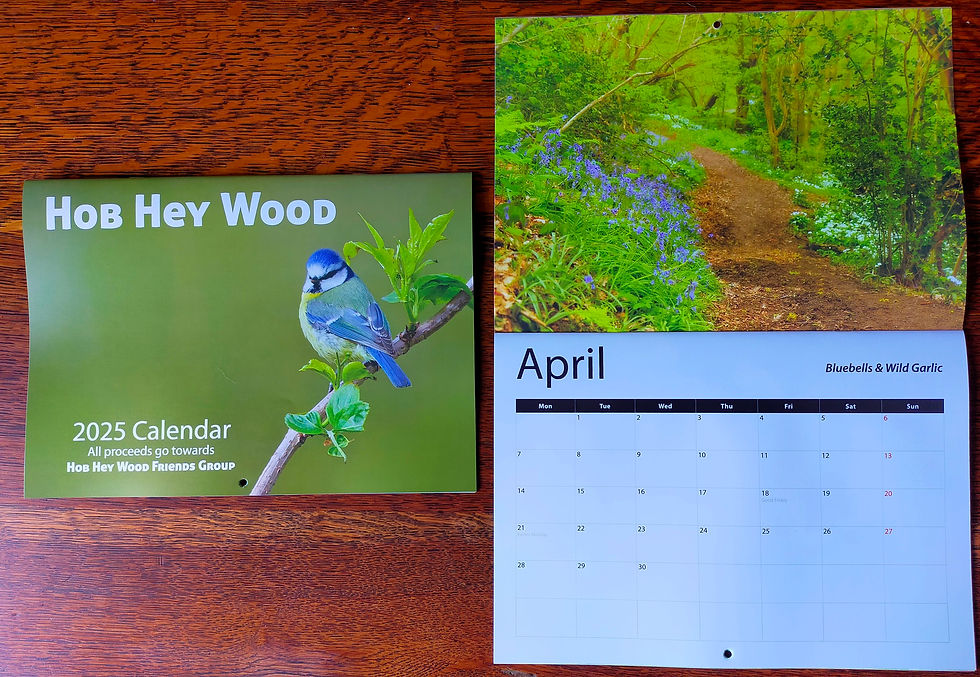The Bluebell
- Mark O'Sullivan

- Apr 30, 2019
- 2 min read

Late April/early May sees Hob Hey transformed into a quintessentially British bluebell wood. Carpets of these beautiful flowers cover the woodland floor giving a dazzling display. When a breeze kicks up, the flowers sway in the wind, almost looking like waves on water. Is there a more beautiful sight in spring?
In Britain, a bluebell wood is never too far away and people who live in Frodsham are within walking distance from our own example. Consider this, however, as bluebells are restricted to Western Europe, there are literally billions of people around the world who cannot take a bluebell walk unless they travel thousands of miles to do so…
Bluebells are most often found in ancient woodland (like Hob Hey) as they spread extremely slowly. As a common plant, known since the Ice Age, there is much folklore concerning the bluebell. According to folklore, anyone who hears a bluebell ring will soon die! Also, fields of bluebells are supposed to be steeped with fairy enchantments.
Despite being poisonous, medieval man had uses for the flower. The sap was used as a glue for book bindings and for attaching feathers to arrows. They were also crushed to make starch for ruffs in Elizabethan times!

Britain has 50% of the world’s bluebells. This makes the British bluebell important on an international scale. Unfortunately, our bluebells face threats from all sides:
i) Habitat loss. We’ve all seen news stories of woodland being ploughed up to build houses. Once a bluebell wood has gone, it’s gone for good.
ii) Collection: bluebells are a popular garden flower so illegal collection of bulbs continues to this day (it is illegal to dig up wild bluebells).
iii) Hybridisation: the non-native Spanish bluebell hybridises with our native bluebell.
There is a real concern that our native bluebell could eventually disappear completely. As stated above, Britain’s bluebells are internationally important and we should protect them where we can.
This makes Hob Hey Wood, home to literally thousands of these gorgeous flowers, extremely valuable, not just to the people of Frodsham, so it needs protecting. Take a walk through the wood when the bluebells are in flower, take in the sights and smells of this almost uniquely British view. Then imagine a world where the bluebells are gone and our future generations can’t enjoy this wonderful spectacle.
Fortunately, Hob Hey Wood is not currently under threat so we should be able to enjoy our bluebell walks for many years to come. The Hob Hey Wood Friends Group, set up to look after this woodland, is looking at improving the habitat for bluebells, increasing the number of blooms in the wood.
If you’re not currently a member of Hob Hey Wood Friends Group and want to get involved, drop us a message on Facebook or an email to hobheywood@gmail.com. The more members we have the more we can do.




Comments